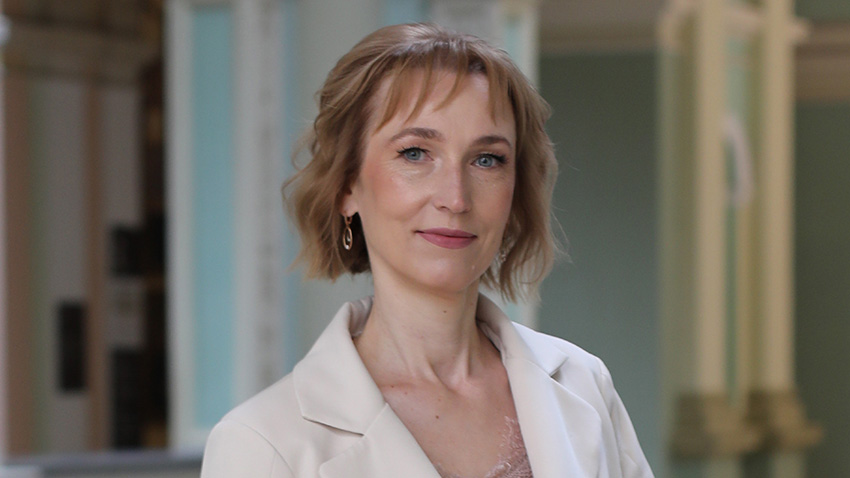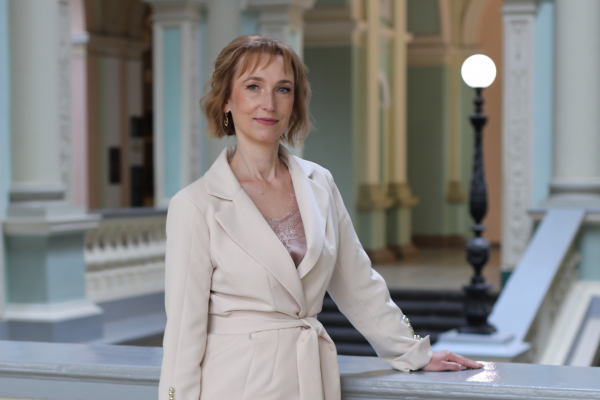At the center of the rector’s vision is the individual. Whether a student, teacher, researcher or administrator, every member of the university community should have the space to grow and the opportunity to be heard and supported. The university of the future, rector believes, is not built on control, but on trust. It is not driven by rigid instructions, but by collaboration and co-creation. This is the approach Rector Nataliia Shakhovska aims to foster at Lviv Polytechnic.
– Ms. Shakhovska, how do you see Lviv Polytechnic in five years?
– I see Polytechnic as a place where people are not afraid to create, says Rector Nataliia Shakhovska. It’s not so much about our position in rankings or how we are perceived in comparison to other institutions – what matters most is that people feel comfortable here and free to innovate. Only individuals who feel physically and emotionally safe – who are free and independent – can truly generate new scientific ideas and shape future trends in education. I firmly believe that every person is unique. At our university, we have researchers capable of working on breakthrough innovations, methodologists who know how to engage with students and do so with passion, and public figures who inspire and lead. To me, the key is not to limit anyone, but to give each person the opportunity to grow in the area where they thrive most.
– How do you approach managing such a large institution?
– I would really like the strategy we have to develop by the end of 2025 to become a true guide for every member of the Polytechnic community. So that the mission and vision, which some perceive rather superficially and do not relate to personally, have deep meaning for both staff and students.
The values of our university are very important to me. So we will work to ensure that they are understandable to everyone and supported. And, guided by these values, everyone will be able to create and choose the best path for their own development.
I am convinced that the key value lies in unlocking the potential of every Polytechnic student. How to create opportunities? Since Lviv Polytechnic is primarily made up of intellectuals, these opportunities should be focused on personal and academic growth – whether through the development of new courses, conducting high-quality research in various fields, or collaborating with inspiring individuals – within the university, across Ukraine and on the international stage.
– Which innovative projects would you like to implement?
– First of all, I want to create more places where both students and teachers can spend their free time. Yes, this will require significant funding, but I’m confident that our partners are willing to support us. I’m also counting on the involvement of architects. There are currently abandoned courtyards on the Lviv Polytechnic campus that could be beautifully transformed into vibrant spaces – places where people can connect, share ideas, and create something new together.
And one more thing – this is probably more of a dream: at the University of Tübingen in Germany, there is a kind of tech hub that brings together all the equipment one could imagine. Students can enter freely, but the condition for being allowed to work with the equipment is that their team must include members from different faculties.
Currently, at Lviv Polytechnic, each Department has its own equipment, but others are not always aware of it. I would really like our university to embrace openness – if someone needs to come and print something on a 3D printer, they should be welcome to do so, and others should have the same opportunity.
– Who inspires you in your work and development?
– My dad is very determined, calm and balanced. I believe these qualities are extremely important in work as well as it’s essential not to stir unnecessary waves. He is a role model for me.
When it comes to political figures, I deeply admire many of our Ukrainian politicians – a whole generation of them. Ukraine has found itself in a near-constant state of struggle, and yet a significant number of our leaders continue to promote the development of national identity and spiritual resilience. I believe this is incredibly important, because it is precisely these elements – self-identity and spirituality – that serve as the cement holding everything together.

